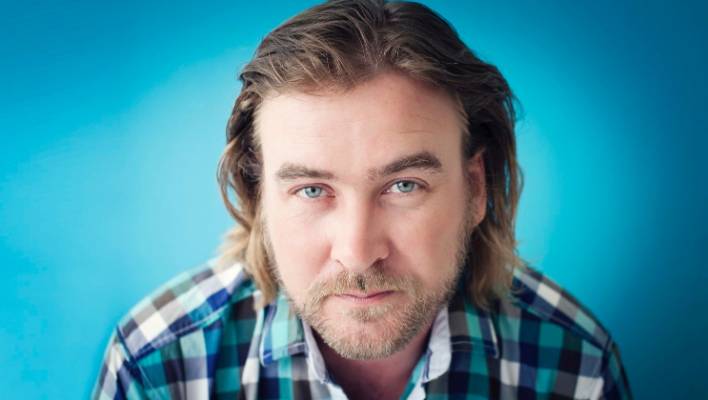Jeremy Elwood & Michele A'Court: You can't pick and choose who gets human rights

OPINION: Husband-and-wife comedians and commentators Jeremy Elwood and Michele A'Court give their views.
MICHELE A'COURT
Over the years, I have made some terrifically bad choices, committed some appalling errors of judgement, and occasionally found myself in a terrible pickle. These are, to be frank, the most interesting things about me. If I'm ever fun at a dinner party, it's down to those wild mistakes.
We don't acknowledge our screw-ups enough, I reckon. We're all so busy presenting ourselves to the neighbours, our kids, the boss, and our Facebook friends as Our Best Selves consistently Winning At Life we forget that our blunders inform who we are just as much as our moments of glory.
READ MORE:
* Jeremy Elwood & Michele A'Court: Avoiding the news
* Jeremy Elwood & Michele A'Court: History has to start somewhere
* Jeremy Elwood & Michele A'Court: Why 7 Days should never be silenced
You don't have to make it a status update, but it might be a great idea this weekend to sit down and make a private list of all the times you've broken a law, but got away with it. Driving too fast, or after three wines; that joint you inhaled; the lie you told on that form; those youthful indiscretions.

And then make another list of the laws you might be willing to break if you were ever desperate enough and really, really needed to.
Then after you've made your list, remind yourself that some people live in that kind of desperation every day. It's easy to think of criminals as "other"; harder to appreciate they're like us on a different kind of day.
An election campaign must be its own kind of "desperate time" for the major players. Some nightmarish combination of job interview, performance review and popularity contest. So various politicians will misspeak or overstate or go wildly off script between now and September 23.
The suggestion last weekend that criminals "have fewer human rights than others" can, most kindly, be put down to that. Because the thing about human rights is that all you need to qualify for them is "be human".
Making someone feel less worthy only makes it harder for them to reach out for help, less likely to live by the rules. Think about the things that hold you back from a wild life of crime – your personal sense of right and wrong, sure, but also your commitment to living appropriately within society. And consider what would happen if the society you lived in told you that you were worth less than someone else. Sod 'em, right?
It's not just me framing it this way – mamby-pamby bleeding-heart liberal snowflake over here, hello! – it is recovering addicts and reformed criminals who have found their way out the other side.
Clinics, community support groups and rehab centres are so often run by people who once made all of the mistakes, and whose work is now informed by that. People like us, only with possibly more colourful stories of disaster and redemption.
JEREMY ELWOOD

OK, you all heard the quote, you've heard the correction, you probably have an opinion about it. So to avoid getting into a spiral of disagreement here, let's clear this up straight away.
Article 7 of the Universal Declaration of Human Rights reads as follows:
"All are equal before the law and are entitled without any discrimination to equal protection of the law."
And Article 12 reads thus:
"No-one shall be subjected to arbitrary interference with his privacy, family, home or correspondence, nor to attacks upon his honour and reputation. Everyone has the right to the protection of the law against such interference or attacks."
Aside from the outdated gender-specific third person pronoun (it was adopted by the UN in 1948, after all), that all seems pretty clear, doesn't it?
Human rights are meant to be, by their very definition, available to everybody, not just those people you think deserve them. That's why we have progressively updated our own laws to reflect a growing acceptance of "other" in our societies, and that's one reason we in New Zealand have just cause to roll our eyes at Australia whenever another one of those stupid "I don't want my son to wear a dress" anti-same sex marriage ads rolls out.
We have laws for two reasons; to protect us from people who would do us harm, and to protect us from Governments that would erode our individual rights. Sometimes the two cross paths, so we have a choice.
We either trust the system that ensures wrongdoing is punished, whilst balancing that against the rights of those accused or even convicted of doing the wrong, or roll back the clock, and start down the slippery slope of re-excluding certain members of our society. The first option is not only fairer, it's a lot safer, too.
When it comes to privacy, to those who hold the opinion "if you've got nothing to hide, you needn't worry about it", I say this: everyone has something to hide. It might be something you've done. It might be something you've said about someone else that you wouldn't ever want them to find out.
It might be a particularly hideous shirt that you wear around the house but throw into the laundry every time there's a knock at the door. We all make mistakes.
One mistake we cannot make is thinking that by eroding the rights of those we disagree with, we are somehow strengthening our own. If they've done something wrong, we have ways and means of addressing that legally.
It may take longer than we would like, and it may not work out perfectly 100 per cent of the time, but that's a price I'm willing to pay.
Stuff